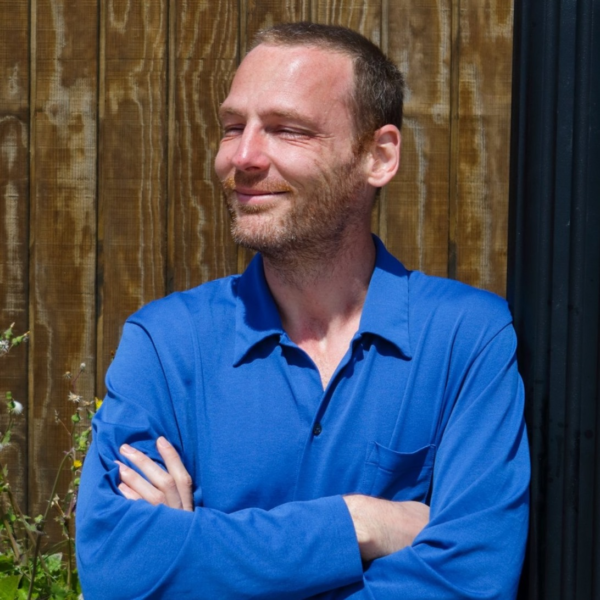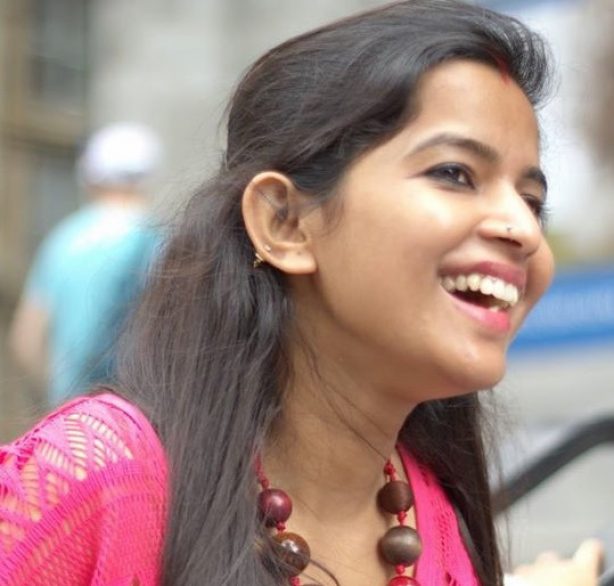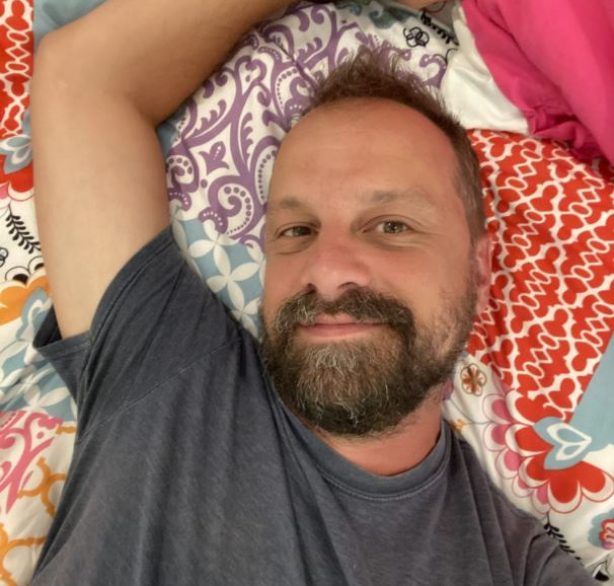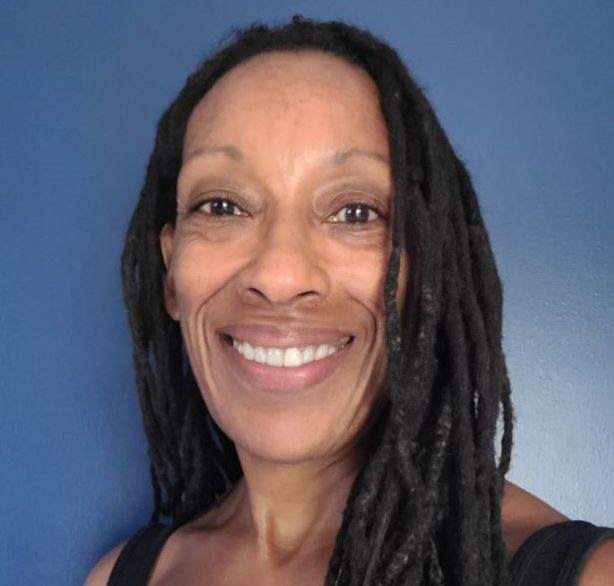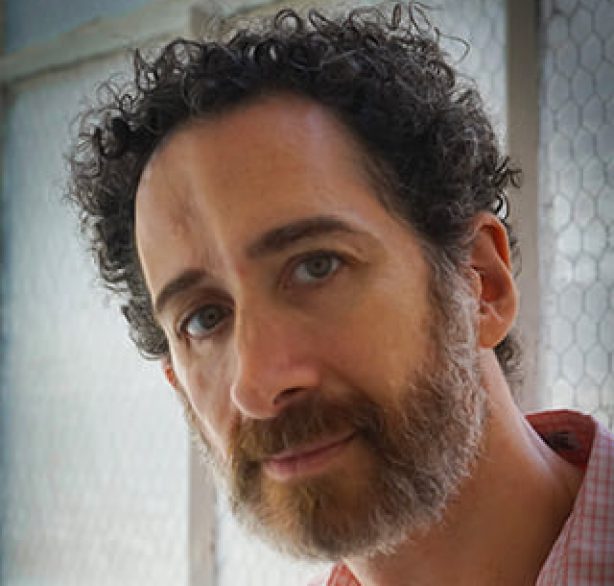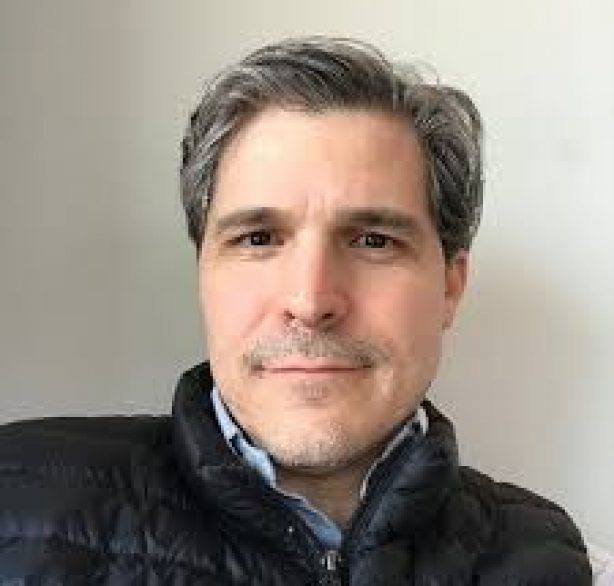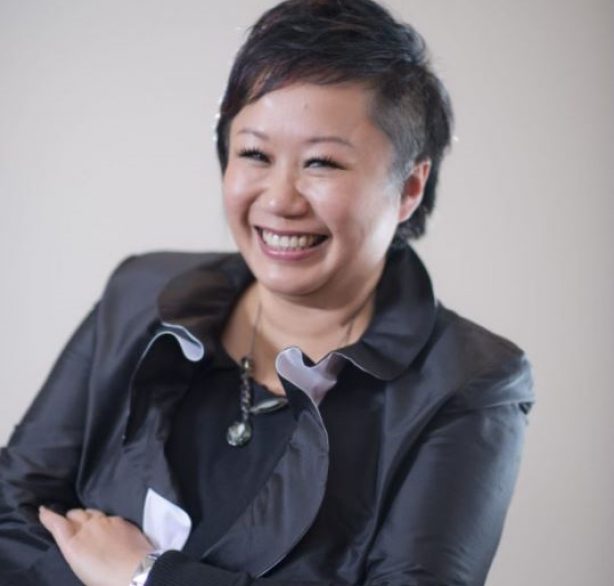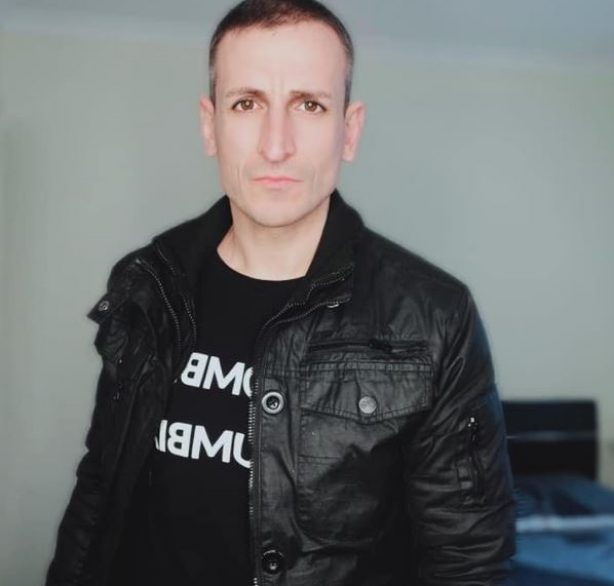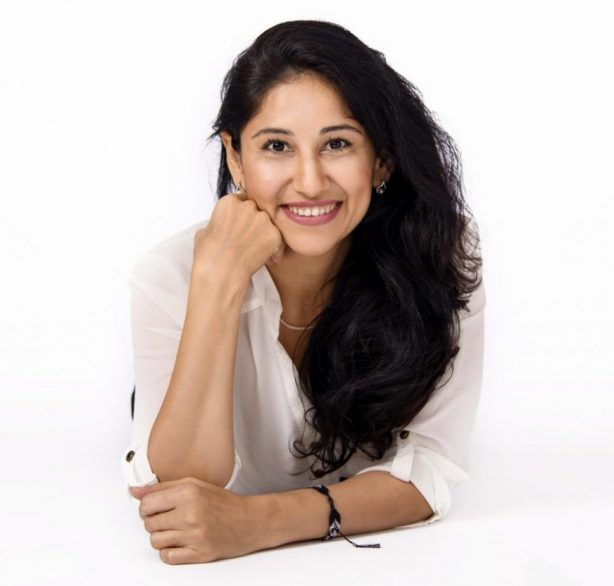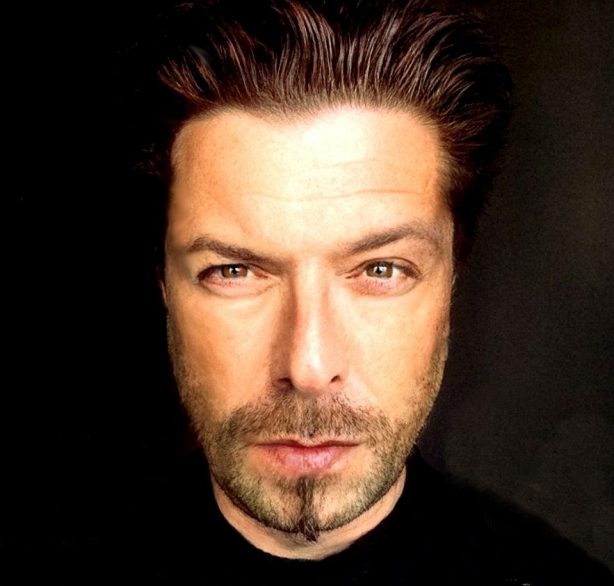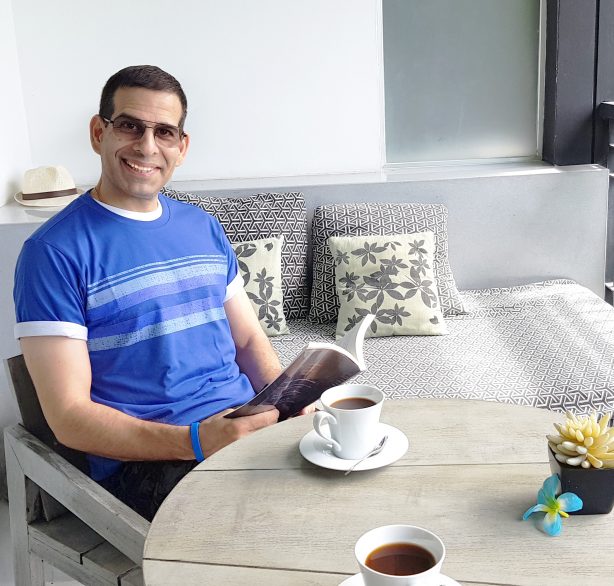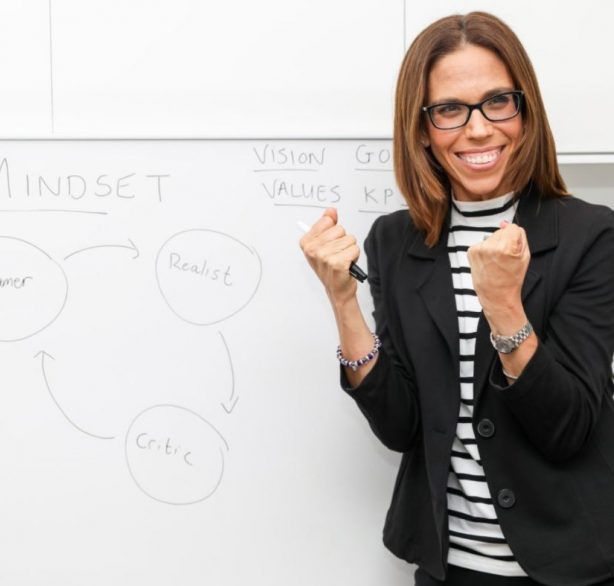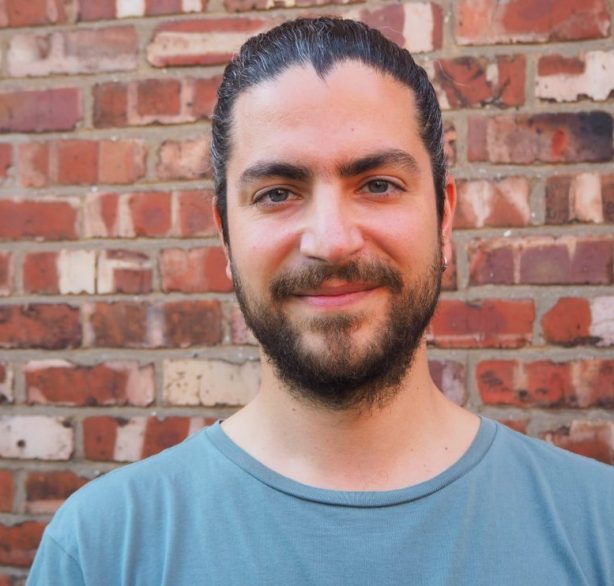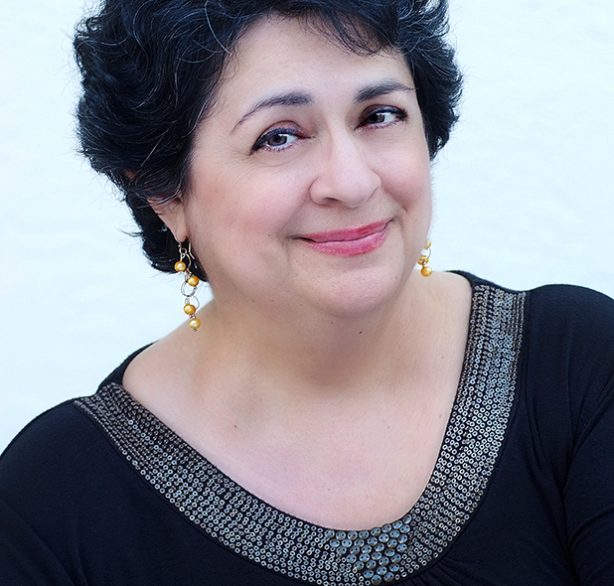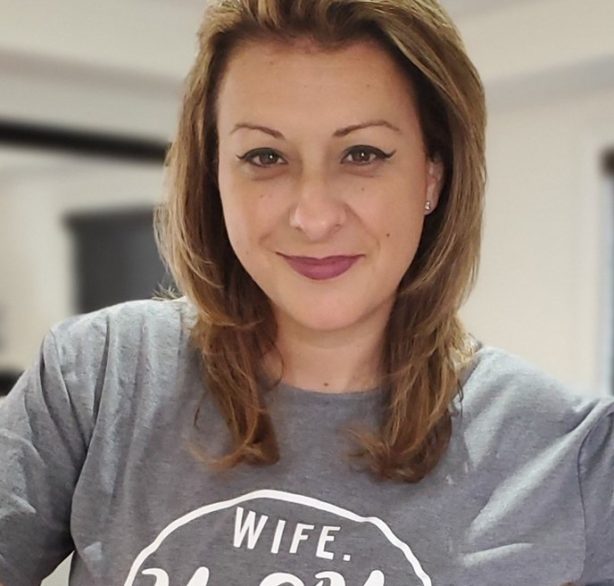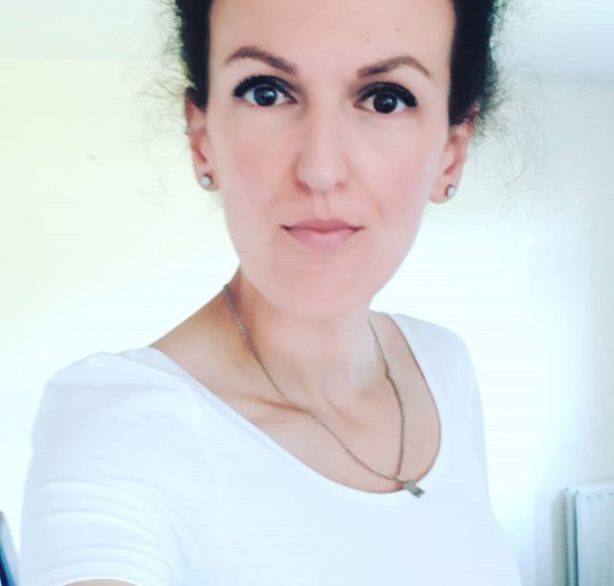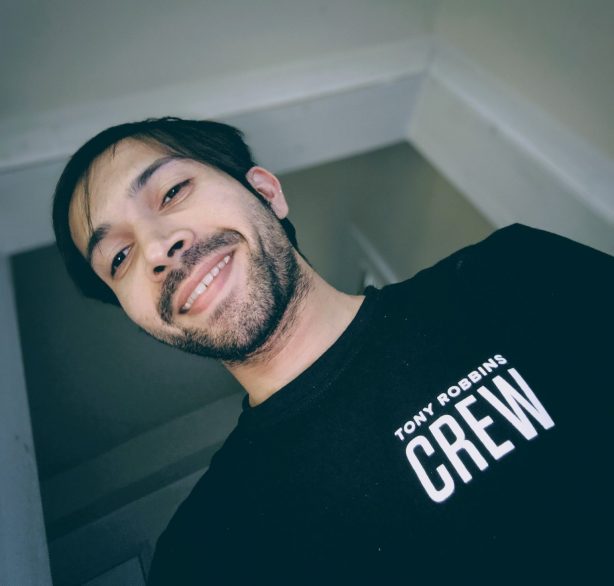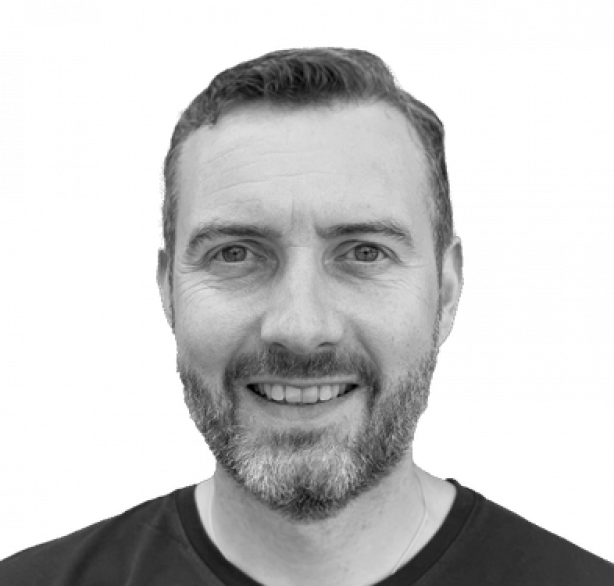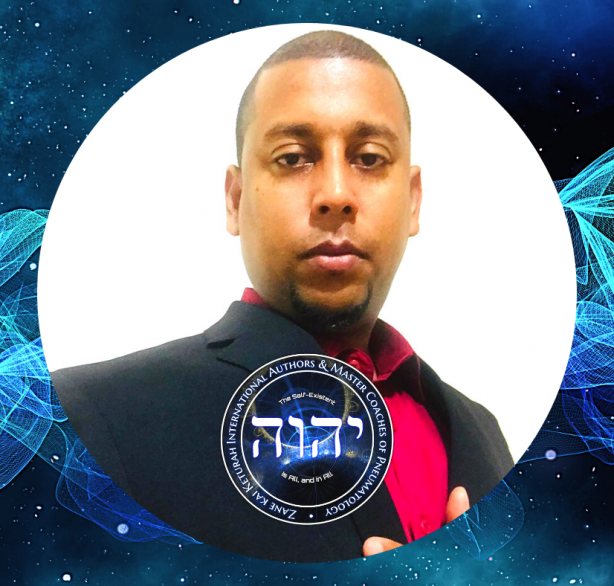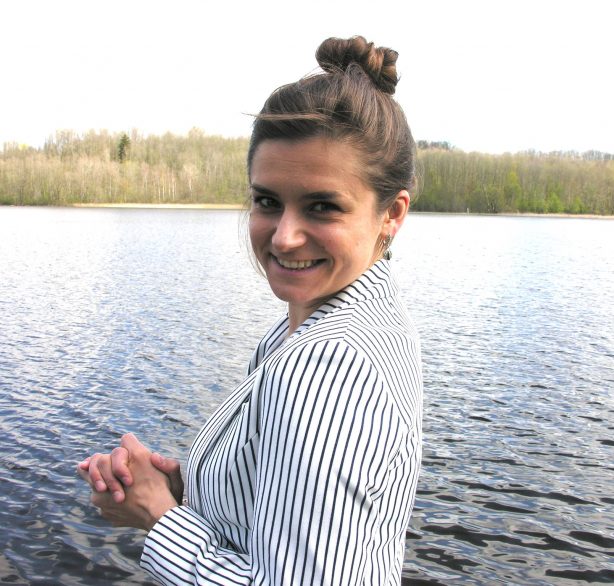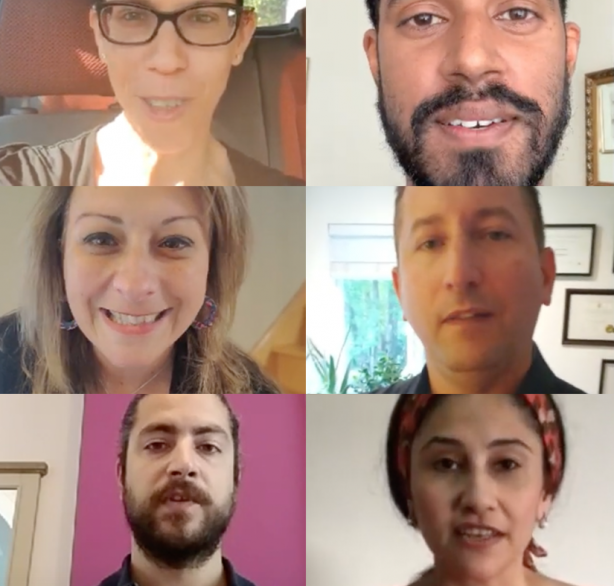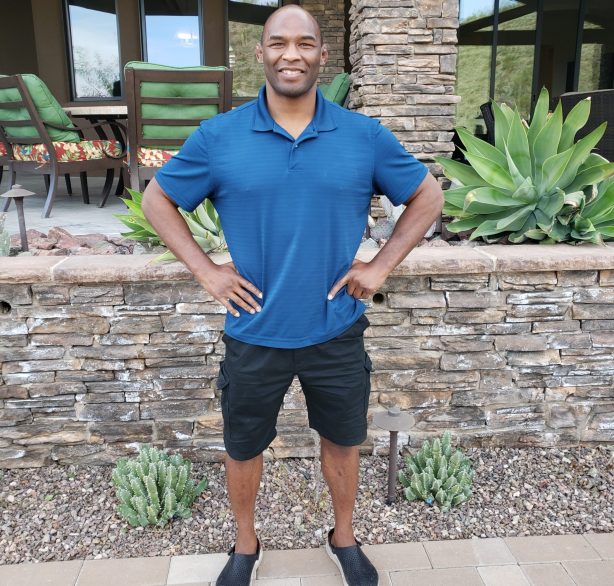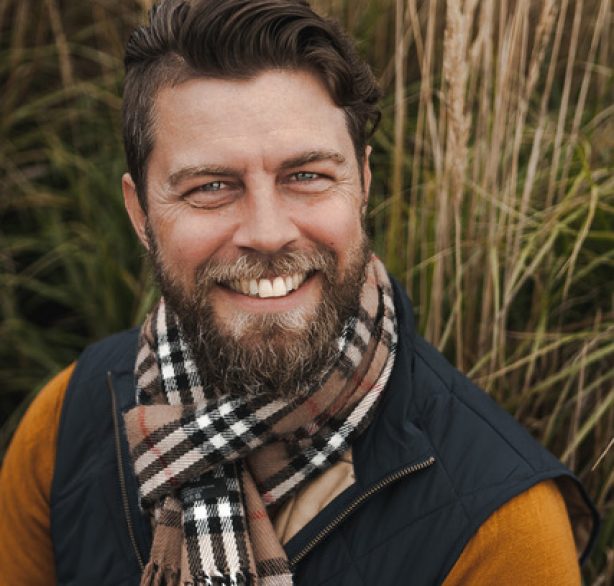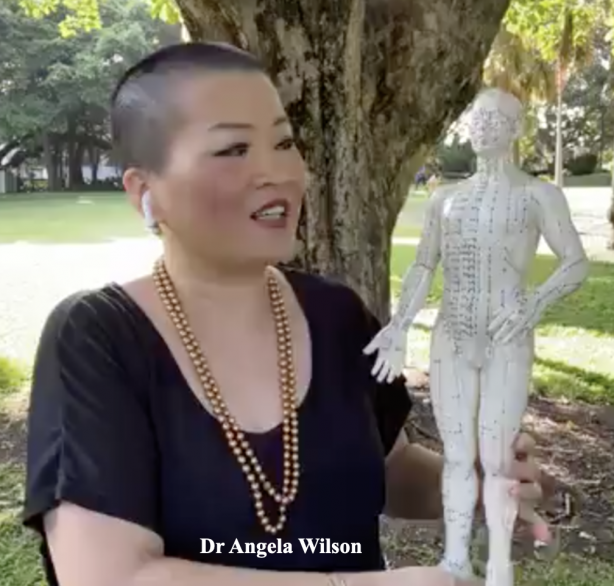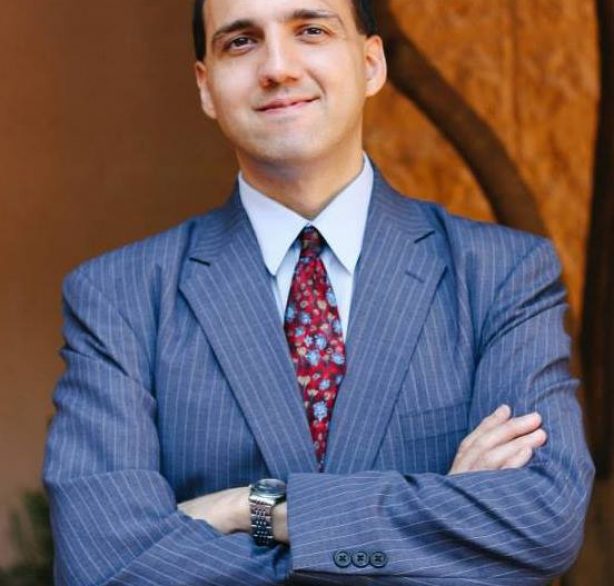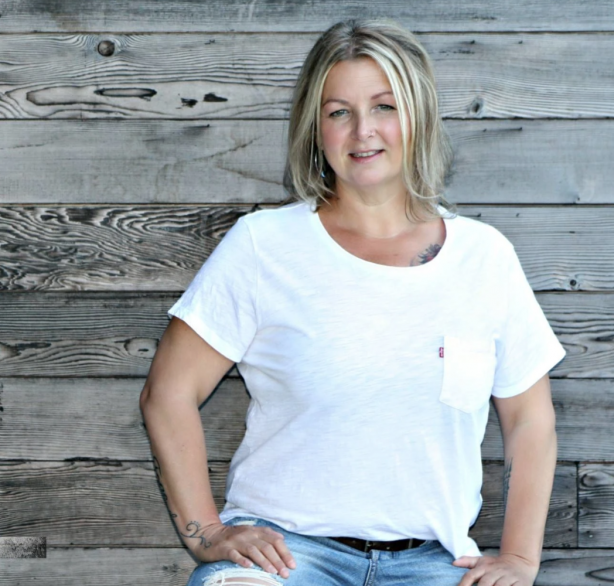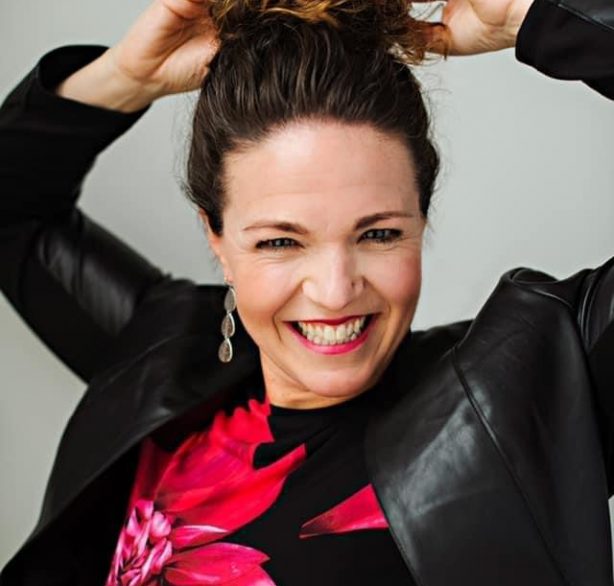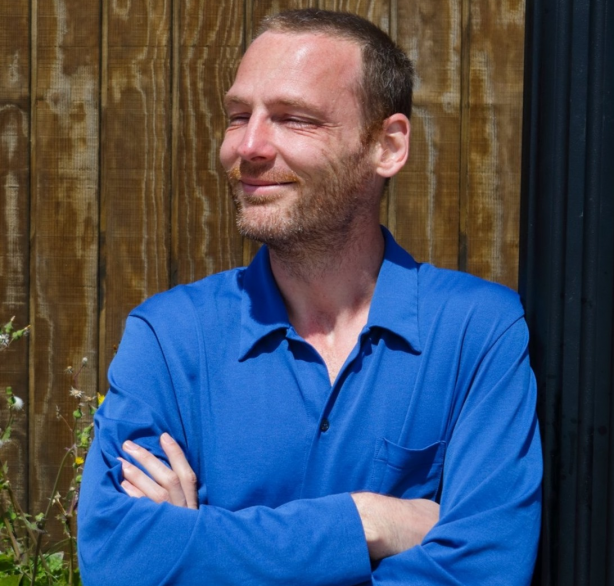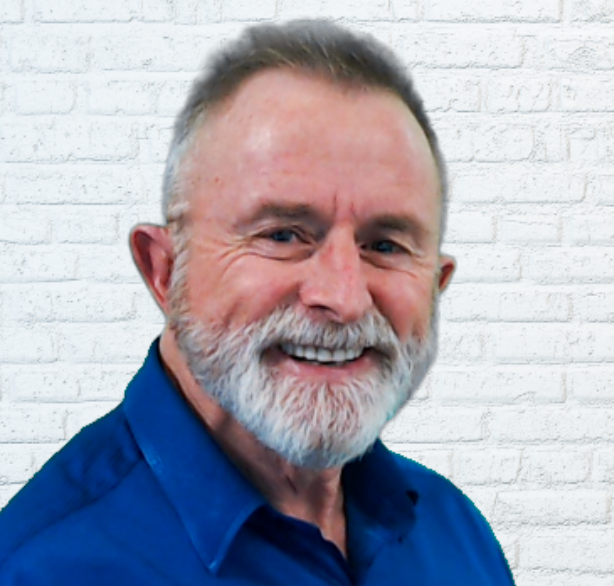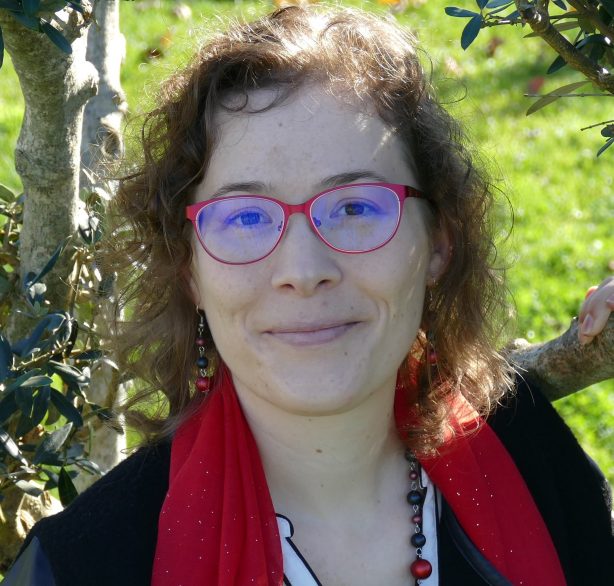Watch the full and inspiring interview with Dane
If you prefer reading, here is the transcribed interview
Ziv: Hey, I’m Ziv, and this is “On The Journey”. Every week “On The Journey” explores the intersection of wellness, spiritual inquiry, mental health, personal growth and purposeful living through the eyes of the people we interview.
And today, I’m happy to host Dane. And talk about Qigong (chi kung, or chi gung).
Welcome Dane and tell us all about it.
Dane: Hi, Ziv. Thank you. I am really glad to talk to you about Qigong. One of my favorite topics is something that I’m very passionate about because of the way that it has transformed my life and I’ve seen it transform other people’s lives as well.
I really appreciate the opportunity to be here and talk about it.
Ziv: Amazing. What is it? Give us a quick background.
Dane: Well, I’ll actually zoom out a little bit to talk about mind body practices. Generally, because what I do is I’m a martial artist in mind and body mastery coach. And the big picture, this is mind body practice.
What I define is mind and body practice is exercise, breath-work, meditation. In some form or combination.
Those are the basic components of mind body practice or exercise, breath-work, and meditation. Each of these is a whole field in its own right. People have known forever to be healthy, to reduce stress, you need exercise, you need high quality movement on a regular basis.
And people have also known for a long time for health, wellness, longevity, for stress reduction, there’s meditation. And more recently, people are becoming more aware of breath regulation, also as a modality for health, wellness, longevity, performance enhancement, stress reduction, emotional healing and even spiritual exploration.
Mind body practices in general as those things and there’s a an ideal mind body practice for just about everybody. That is what I consider to be a complete mind body practice, which is called Qigong.
Qigong just means energy work. Share on XIt’s actually one of the three primary branches of traditional Chinese medicine. There’s acupuncture, herbology and Qigong. Qigong is solo energy cultivation.
It’s exercises that you do on your own to cultivate your vital energy and specifically consists of the three regulations which are body regulation, breath regulation and mind regulation, i.e.. Exercise, breath work and meditation.
The three components of mind body practice, so Qigong is an ideal balance mind, body practice in that sense. Are you familiar with Qigong at all? Is it something you’ve come across?
Ziv: Interesting that I heard about it in so many occasions and really zoom out perspective and I understand that it’s like you said, it combines the three worlds, which sounds like super interesting. But I have no idea.
Dane: I’s just kind of been there on the periphery for a while. I tend to run into people who are interested in hearing more about this or would be if they knew about it. And that’s a big part of my mission in life, is to help more people learn about this and learn to practice, because that’s the world that I want to live in, where more of us, even all of us, have a personal daily mind body, energetic hygiene practice.
J ust like brushing your teeth, just like taking a bath, just like getting sleep and and water and vitamins and minerals and sunshine and all the other things that we need to be healthy and well, physically, mentally, spiritually, etc..
So for those who aren’t familiar with Qigong, what most people think of as tai chi, i.e. old people moving slowly in the park early in the morning in pajamas, that’s kind of what Qigong is.
It’s slow, gentle movements, breath work and meditative awareness.
There are a lot of really great things about Qigong, but one of the really great things about it is that it’s completely accessible to pretty much everyone in any physical state or condition or age or stage of life.
Their practices, like yoga, for example, that have similar benefits for stress reduction and health and wellness. But not only are they not accessible for people in certain conditions, often people actually enjoy themselves doing other strenuous exercises like that because they’re so strenuous.
It kind of defeats the purpose. And Qigong is inherently gentle, in fact, it’s based on the two first principles, which are the non existent principle and the pleasure principle.
The non existent principle is don’t force, don’t strain, don’t overexert, don’t try too hard. The pleasure principle is do if it’s feels good for your body, if it feels good, you’re doing it right. It’s the opposite of
No pain, no gain. Share on XIt’s a practice that you do it. It feels good, it’s good for you. You feel better after you do it. You do it a little bit. You want to keep doing it more. And after a while it grows on you and you don’t want to miss it because you know how good it makes you feel.
Ziv: Wow, that sounds really amazing and interesting. Which brings me to a question about the no pain, no gain. Even been in meditation, like when you sit for long sessions or going to a retreat at some point it becomes like an exercise which is far from effortless.
Actually training yourself to meditate, to go back to the place of meditation from the wandering mind and when you do it over and over. It’s one of the hardest exercises I ever experienced. And most things you want to get better at at some point, sooner or later it becomes and very challenging.
Is it like that? or no? Through all its pure joy, through all the process, which sounds like I’m going to bite.
Dane: I wouldn’t put it that way, it’s pure joy, because that maybe conveys the wrong idea.
But this is a really good question you’re asking, because it really gets to the root of of a number of things and and a few things about this.
One is,
Healing comes about through releasing tension. Share on XThat’s the non-aggression principle, it’s releasing tension in the body. So if you’re forcing yourself to do something, if you’re forcing yourself to sit still, if you’re forcing yourself to concentrate, you’re forcing yourself to sit there and not think about and think about nothing. You’re creating tension in the body.
Which is, you’re going extremely fast in the wrong direction. Exactly the opposite directiom.
I’s a fundamental that’s the root of it and it’s not that it’s pure bliss all the time, but it’s something that is actually good for you and when you do it a little bit, it feels good when you do it a little bit more, if you do it correctly, if you follow the non-aggression principle and the pleasure principle and do it in a way that feels good for you for a duration, that is sustainable.
Then it’s like getting addicted to anything, really. You take a nibble, it’s good. You want more. It can be a pull process rather than a push process. A push process is where you have to exert willpower, which is a finite resource energetically for the brain. Eventually runs out where is pull process or something that you do it a little bit in it and you experience the benefits, so you want to do it more and it pulls you forward and it doesn’t require you to exert willpower along the way.
That’s also the basis of it, and I don’t to the idea that there’s no discipline whatsoever involved because there certainly is a certain internal alignment necessary and their choice has to be made to actually do the practice, know if it was a pill you could swallow. But it’s a practice. You have to do it. And and I designed what I call your daily dose of Qigong. It can be done in 15 minutes a day, just quick and easy and feels great.
But you actually have to do it and you have to have the internal alignment to do that. But it’s a process that is innately rewarding. And as you go along and it becomes more and more deeply rewarding and something else I also want to say about the type of meditation you’re talking about, things like force courses or they’re called retreats.
But it’s a training course, which is is great and it’s totally valuable. And I’ve done that type of course..
Exactly, what you’re saying, it’s a type of training, it’s a type of discipline, and when you train to meditate that way, you’re training to sit still without moving for long periods of time. That’s what you’re training your body to do. It’s as good as anything. It’s as good as throwing a ball around or or throwing darts or whatever.
To realize is it is it necessary to do that in order to meditate. And this is one of the great things about going in a big mental block that a lot of people have with meditation, particularly, is that they have a hard time sitting still. And the great thing about Qigong is you don’t have to sit still to meditate, exercise, breath, work, meditation.
You can combine all three in a single activity. You can stand up, you can move around while you’re meditating. So it’s there’s there’s nothing wrong with sitting still to meditate, but it’s not the only way.
One of the ways that somebody who is interested in getting into mind body practices and wanting to get into meditation, this can be a great way to ease into it.
Ziv: That sounds really like super appealing. And just that would get maybe a better picture before I go straight after this interview to find out where I can practice Qigong and how I can start to understand the difference between Qigong and yoga, because, like you said, yoga many times, it doesn’t fit all people and it’s certainly not a full enjoyment.
It’s a lot of effort, at least from what I triedit, but you mentioned also Taichi. So what’s the difference between Qigong and Taichi?
Dane: That’s a great question. I’m glad you asked it because it’s a really helpful thing to put into context and because they are often used interchangeably.
Essentially, Qigong, as I mentioned, is one of the three primary branches of traditional Chinese medicine, and Qigong itself has three primary branches martial qigong, medical qigong and spiritual qigong.
Medical qigong, the emphasis is on health, wellness, longevity, stress reduction. Medicine Qigong, the emphasis is on strengthening the body and performance enhancement. Spiritual qigong, the emphasis is on spiritual development and refining the internal energy of the body.
They all have more in common and they have different.
They’re all based on the three regulations and the two first principles. But Qigong is a very broad umbrella that includes a very wide range of practices. It’s a very broad term.
Tai Chi and other internal martial arts are forms of martial Qigong, and this is how I originally discovered Qigong. I originally came to it through martial arts and Tai Chi is there is the one of the most well known internal martial arts, there are others. But basically these are forms of martial qigong.
Tai Chi was arose as a martial art that incorporated the principles of Qigong, which go back thousands of years all the way to the Yellow Emperor is classic on internal medicine, the eating very old principles and Taichi in the modern world has developed very much in the direction of a health Qigong practice.
Many people practice Tai Chi largely as a form of health qigong and when people think they’re looking for tai chi, they’re thinking, you know, pajamas and moving slowly and all that kind of stuff. And what they’re actually looking for is Qigong. They’re not looking for a martial art persay, but they’re looking for qigong on the health benefits.
People often recognize the name Tai Chi because of that and they just they they haven’t heard of Qigong, so they don’t know what they’re really looking for.
The terms are often used interchangeably just to get people’s attention just so that we can kind of establish what we were talking about all day.
Ziv: Ok, Dane. So I learned so much. It sounds like, it combines the most powerful elements that we could have imagined, physical, breathing, patience all in one, and it’s easy, it’s pulling. You not need to push. What else can we ask?
Dane: Well, you wanted to know about how to learn.
Ziv: Definitely.
Dane: I made something for this, a resource, to make it easy for anybody who wants to establish a personal daily mindbody by the energetic in practice to get started. It’s what I call your Daily Dose of Qigong.
What I created is actually a group on Facebook called the “Seven Day Qigong non challenge”, because it’s designed to be so easy, there can be no excuse not to do it. All you have to have the Internet line. You have to decide if you actually want and then follow through with it.
It’s but it’s actually easy to do. It’s a series of video shows, designed to watch and follow along. And my bet is that after seven days, it will feel so good that you’ll want to keep doing it.
We have an online learning community and a whole library of resources to support you if you want to go deeper with this practice, but that group, the “Seven Day Qigong Non Challenge” on Facebook, is just there as a free resource to support anybody who wants an easy way to get into this.
Ziv: Amazing. We can definitely going to have these links below the video. If you’re watching it, just look down and you’re going to have all the form.
Dane, Thank you so much for all this knowledge, insights, perspective. I learned a lot from this interview, so I’m really grateful for it. Thank you very much.
Dane: You’re welcome. Glad to hear that. And I’m also really grateful for the opportunity. Thank you.
Ziv: Thank you.
Who are you?
Dane Dormio is a martial artist and MindBody Mastery Mentor.
You can check out his facebook page called “7 Day Qigong Non- Challenge.“
DISCOVER MORE OF DANE THROUGH HIS FACEBOOK.
